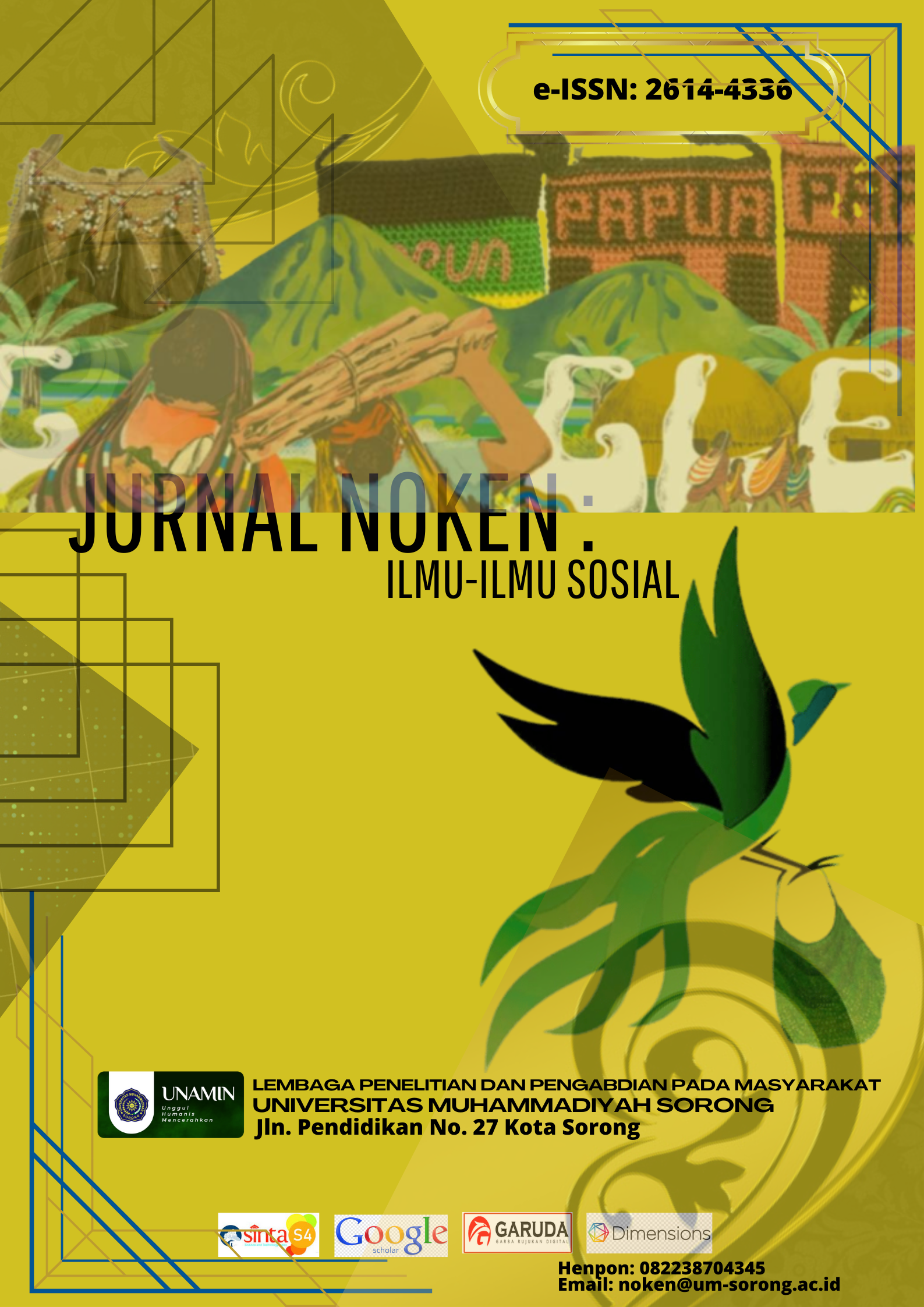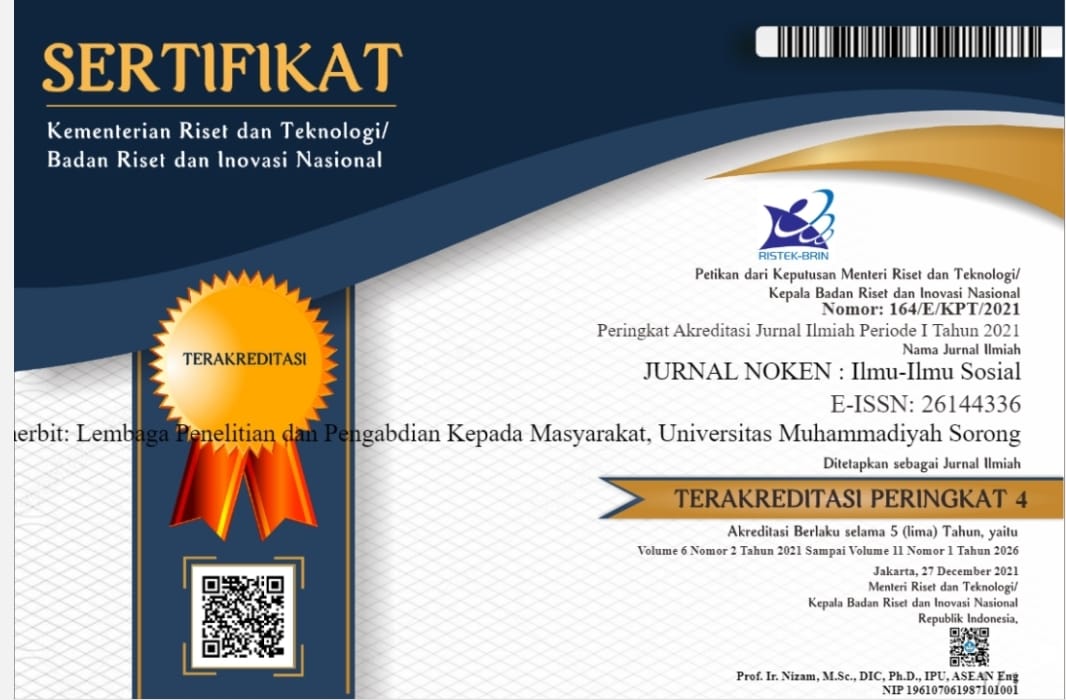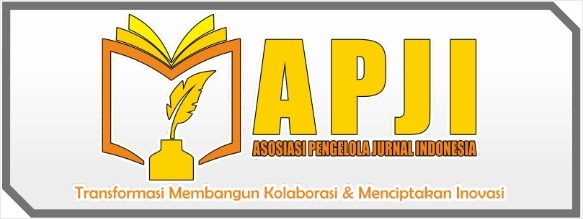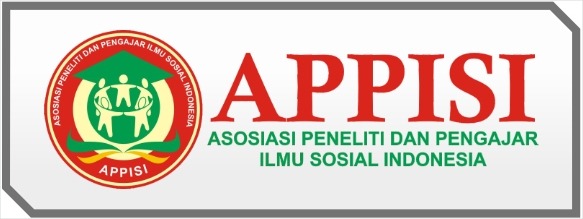Dampak Otonomi Khusus Pada Ekonomi Orang Asli Papua Setelah Implementasi Kebijakan Pemerintahan
DOI:
https://doi.org/10.33506/jn.v10i1.3461Keywords:
Sosial_ekonomi, Otonomi_khusus, Orang Asli PapuaAbstract
The economy of indigenous Papuans is still relatively low even though special autonomy funds continue to be given to regional governments every year. The aim of the research is to determine the impact of special autonomy on the economy of indigenous Papuans after implementing the policy in Sorong City, Southwest Papua. This research uses qualitative research methods with a descriptive approach. Qualitative methodology presents a research strategy that presents descriptive data in the form of written and verbal messages from the subjects and their observed attitudes. The results of the research show that the implementation of the Special Autonomy policy in Papua still has significant challenges. Communication factors, resources, disposition and bureaucratic structure have an important role in the success of policy implementation. There is an urgent need to improve coordination between the central and regional governments, as well as involving all elements of society, especially those below the poverty line, in the policy process. The conclusion of this research is an increase in the implementation of the Special Autonomy policy to ensure the development and welfare of the Papuan people. Strategic steps need to be taken to optimize Papua's natural and human resources, as well as improve economic and social conditions in the area. Thus, this research makes a valuable contribution to understanding and dealing with existing problems more effectively.
References
Widjojo, M. S. (2017). Perempuan Papua dan peluang politik di era otsus Papua. Masyarakat Indonesia, 38(2), 297-327.
Matza, S., Rahmawati, D. E., Nurmandi, A., & Suswanta, S. (2020). Corruption in Procurement of Goods and Services in Makassar City. Journal of Governance and Public Policy, 7(2), 128-138.
Alim, A. S., Salmawati, S., & Rahmawati, D. E. (2021). Etika Politik Terhadap Perilaku Korupsi di Indonesia (Studi Kasus DPRD Kota Malang). Jurnal Noken: Ilmu-Ilmu Sosial, 7(1), 30-43.
Rochendi, S., & Saleh, K. A. (2017). Hubungan pemerintah pusat dan daerah dalam otonomi khusus di Provinsi Papua Barat. POLITIK, 13(1).
Zulfia, I. H., Frinaldi, A., & Magriasti, L. (2023). Problematika Pelaksanaan Otonomi Khusus di Papua: Ditinjau Dari Indeks Pembangunan Manusia. Jurnal Manajemen Publik dan Kebijakan Publik (JMPKP), 5(2), 137-147.
Sinen, K., Ningrum, A. S., & Kabes, O. A. (2022). Strategi Pemerintah Dan Masyarakat Dalam Menjemput Daerah Otonomi Baru Papua Barat Daya Pemekaran Provinsi Papua Barat. JISIP UNJA (Jurnal Ilmu Sosial Ilmu Politik Universitas Jambi), 6(2), 45-54.
Frasawi, J. H., Tinangon, J., & Warongan, J. D. (2021). Analisis Pengelolaan Dana Otonomi Khusus pada Pemerintah Kabupaten Sorong. JURNAL RISET AKUNTANSI DAN AUDITING" GOODWILL", 12(2), 377-394.
Lili, S. (2023). Keterlibatan Elit Pemerintahan Lokal dalam Proses Pembentukan Provinsi Papua Barat Daya. Jurnal Pendidikan dan Konseling (JPDK), 5(1), 360-367.
Pamungkas, C., Oktafiani, I., & Imbhiri, L. (2022). Makna Pembangunan Bagi Orang Asli Papua: Studi Terhadap Marginalisasi dan Depopulasi di Tanah Papua. Jurnal Ilmiah Hubungan Internasional, 16-38.
Pahri, P. (2017). Model pemberdayaan ekonomi perempuan Papua melalui majelis Rakyat Papua: Studi Kasus Masyarakat Perempuan Asli Papua di Kota Jayapura (Doctoral dissertation, Universitas Islam Negeri Maulana Malik Ibrahim).
Kaisupy, D. A., & Maing, S. G. (2021). Proses negosiasi konflik papua: dialog Jakarta-Papua. Jurnal Ilmu Sosial Dan Humaniora, 10(1), 82-98.
Surtiari, G. A. K., Romdiati, H., Katherina, L. K., Kusumaningrum, D., & Prasojo, A. P. S. (2020). Memahami kualitas sumber daya manusia OAP berdasarkan pendekatan people-centered: Studi di Kabupaten Tambrauw dan Sorong. Masyarakat Indonesia, 46(1), 1-14.
Rahami, R., & Bahmani Ghajar, M. A. (2023). The Interaction of the Right to Self-Determination and the Principle of Immunity of Territorial Integrity in Autonomous Region of South Ossetia and Autonomous Republic of Abkhazia. Central Eurasia Studies, 16(1), 197-221.
Vidriza, U., & Talmera, D. A. (2022). Implikasi Dana Otsus dalam Mengurangi Kemiskinan di Papua: Dengan Error Correction Model (ECM). Governance, JKMP (Governance, Jurnal Kebijakan & Manajemen Publik), 12(1), 20-33.
Zain, E. M., Kopong, A. H., & Banggu, M. (2023). The Implementation of Special Autonomy in Southwest Papua. Sospol: Jurnal Sosial Politik, 9(2), 235-246.
Tryatmoko, M. W. (2016). Politik Kebijakan Pengelolaan Dana Otonomi Khusus Papua. Jurnal Penelitian Politik, 9(1), 18.
Grydehøj, A., Kim, S. P., & Su, P. (2023). INDIGENOUS ISLAND AUTONOMY AND SPECIAL ECONOMIC ZONE STATUS. Shima, 17(1).
Mollet, J. A., & Blesia, J. U. (2023). Economic Development Based On Adat In Indonesia’S Most Eastern Province Of Papua. Regional and Sectoral Economic Studies, 23(1), 15-32.
Bolgherini, S., & Klotz, G. (2023). Proceed with caution: Local governance and municipal horizontal strategies assessed by local elites in the Alpine area. disP-The Planning Review, 59(2), 53-75.
Sumskaya, T. V. (2022). Trends in Financial Support of the Budget Powers of the Authorities of Large Cities in the Russian Federation. Regional Research of Russia, 12(3), 271-282.
Rumere, V., Sugiyanto, C., & Sulistyaningrum, E. (2022). The impact of special autonomy on education and health outcomes. JEJAK: Jurnal Ekonomi dan Kebijakan, 15(1), 114-138.
Downloads
Published
How to Cite
Issue
Section
License
Copyright (c) 2024 Salmawati Salmawati, Arie Purnomo, Siti Nurul Nikmatul Ula, Lukman Rais, Saiful Ikhwan

This work is licensed under a Creative Commons Attribution-ShareAlike 4.0 International License.










